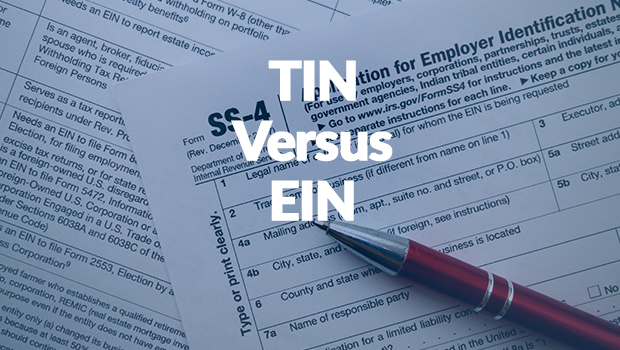When you file a return with the IRS, you have to include more than just your name. You also need to include a Taxpayer Identification Number, or TIN. But many of you reading this right now are probably thinking, “I usually just put my Social Security number (SSN) or Employer Identification Number (EIN), so what’s a TIN?”
The short answer is that an SSN or EIN is a type of TIN. To confuse things a bit more, there are other types of TINs that the IRS uses or recognizes. In this blog post, we’ll examine some of the most commonly used TINs, including what they are, when to use them and how to get one.
Different Types of Taxpayer Identification Numbers
The IRS currently recognizes the following five types of TINs:
- SSN
- EIN
- Individual Taxpayer Identification Number (ITIN)
- Taxpayer Identification Number for Pending U.S. Adoptions (ATIN)
- Preparer Taxpayer Identification Number (PTIN)
Social Security Number
An SSN is a number assigned to eligible individuals to help keep track of their earnings and eligibility for government benefits. Every assigned SSN is unique; even when someone dies, their SSN does not get reused. Because everyone has their own SSN, this number is often used in a variety of contexts, including taxes. Many organizations (including the IRS), use the SSN to identify each taxpayer.
To get an SSN, a person will complete Form SS-5 and submit it to the Social Security Administration. Only those with certain lawful immigration statuses (or who are U.S. citizens) may receive an SSN.
Employer Identification Number
Also known as a federal tax identification number, the EIN is used by the IRS to identify certain entities with the IRS. EINs are usually used by businesses, but other entities that use them may include trusts and estates. For tax purposes, you can think of an EIN as being something like an SSN for a business. Entities that need an EIN can apply for one for free online.
Individual Taxpayer Identification Number
The ITIN is a tax identification number for individuals who aren’t eligible for an SSN, but need to file tax returns or other documents with the IRS. To get an ITIN, you need to complete Form W-7, Application for IRS Individual Taxpayer Identification Number.
Taxpayer Identification Number for Pending U.S. Adoptions
The IRS will issue an ATIN to someone who is legally adopting a U.S. citizen or resident, but is unable to get that child an SSN in time to file the individual’s tax return. To obtain an ATIN, a person must complete Form-7A, Application for Taxpayer Identification Number for Pending U.S. Adoptions.
Preparer Taxpayer Identification Number
Anyone who helps someone prepare their taxes for a fee must have a PTIN. IRS uses PTINs to identify each tax preparer instead of requiring their SSNs. You can obtain a PTIN by applying for one online or by completing Form W-12, IRS Paid Preparer Tax Identification Number Application and Renewal.
The PTIN shouldn’t be confused with the Electronic Filing Identification Number (EFIN). The EFIN is required for individuals or businesses that the IRS has approved to e-file tax returns.
Still Have Questions about Tax ID Numbers?
If you think you might need a new or different TIN, but aren’t sure how to get one, you can talk to your tax professional or visit the IRS’ Tax Identification Number webpage for more information.
Kienitz Tax Law is here to help you with your tax issues. Schedule your FREE consultation today!

